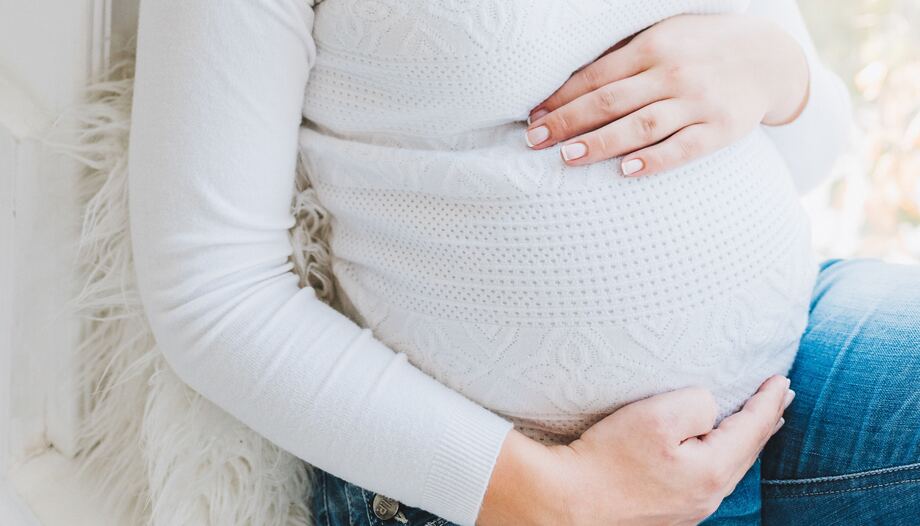"A human life is a gift and not a right," the bishops emphasize. "The Church recognizes the legitimacy of the desire for a child, and understands the sufferings of spouses afflicted by the problem of infertility. However, this desire cannot be placed before the dignity that every human life possesses to the point of subjecting it to absolute domination. The desire for a son cannot justify the "production" of it, just as the desire not to have a child already conceived cannot justify its abandonment or destruction," they point out.
They then add that "there is no "right to procreation". and therefore a "right to the child". The reproductive will cannot annul gestation or maternity". On this point, they recall the recent document "The faithful God keeps his covenant" of the EEC itself, which comments, among other aspects, on the separation between procreation and sexuality.
"The separation between procreation and sexuality represents a deep wound to human nature and to the family. To nature, because it transforms the child into a product, insinuating the idea that life can be a human production. To society, because the new life presupposes only a technical capacity and not a context of love of spouses who want to be parents...", says the document. "The natural family is thus deconstructed and artificially reconstructed in many ways, following the desires of each individual. This implies favoring "the rights of the child to a family composed of a man and a woman united by a lasting covenant of reciprocal love."
"The end never justifies the means."
"In all surrogate motherhood," adds the episcopal noteThe Pope's statement, made public at the end of the April Plenary Assembly, "there is heterologous artificial fertilization which "is contrary to the unity of marriage, to the dignity of spouses, to the proper vocation of parents and to the right of children to be conceived and brought into the world in marriage and through marriage. Let us remember that the end never justifies the means and that every human person is an end in himself or herself. To deny these truths would lead us to affirm that everything technically possible can be done and to legitimize the objectification and use of some persons by others".
It should be added, the bishops affirm, that "with the so-called 'womb for rent', maternity becomes an object of commerce, to be bought and sold. The woman is reduced to a simple instrument, a 'womb' at the disposal of the contracting party, opening the way to the exploitation and commercialization of the human person. The contract culminates with the delivery of the child. As Pope Francis affirms: "the dignity of man and woman is also threatened by the inhuman and ever more widespread practice of 'womb for rent', in which women, almost always poor, are exploited, and children are treated as merchandise.".
No to trade in children
No human life should be considered a commodity or a consumer good. No child's life should ever be treated as something to be trafficked and traded. The good of the child should be sought first and foremost, and not be subordinated to the wishes and decisions of those who commission it. On the other hand, the possibility of abandonment of children (real, occurring in some countries due to twin births, pathology or gender preference), represents a serious marginalization that violates the principle of non-discrimination of the minor or of any disabled person..
The bishops encourage to keep in mind "that ce are seeing more and more scientific data highlighting the importance for physical and psychological health of the maternal-filial relationship during gestation. This, for the sake of the child, obliges us to be even more cautious when approving surrogate wombs".
"It is necessary to prioritize the good of the children conceived through surrogacy, seeking the best solution regarding their legal status, being aware that they have all the dignity and deserve to be welcomed and respected. A child, regardless of how it was conceived, must be loved and have its rights respected", they state.
Human dignity, a fundamental value
The importance and meaning of human life demand a well-founded reflection that seeks its dignity within the framework of a humanism that is faithful to the truth of the human being. In this context, they quote Benedict XVI when he affirmed that "without the founding principle of human dignity it would be difficult to find a source for the rights of the person and impossible to reach an ethical judgment regarding the achievements of science that directly intervene in human life". "It must be remembered that human dignity is a fundamental value that must be respected and protected, regardless of religious beliefs or lack thereof."
Pope Francis was quoted above in his defense of the dignity of man and woman. And the note also considers it "necessary to recall the affirmation of St. John Paul II, in 'Evangelium vitae': 'For the future of society and the development of a healthy democracy, it is therefore urgent to rediscover the existence of essential and original human and moral values, which derive from the very truth of the human being and express and protect the dignity of the person. These are values, therefore, that no individual, no majority and no State can ever create, modify or destroy, but must only recognize, respect and promote". For this reason, we believe that legislation is necessary to prevent this practice of surrogacy", they affirm.
In the last few weeks, the public debate on surrogacy has increased as a result of cases that have come to public attention.









